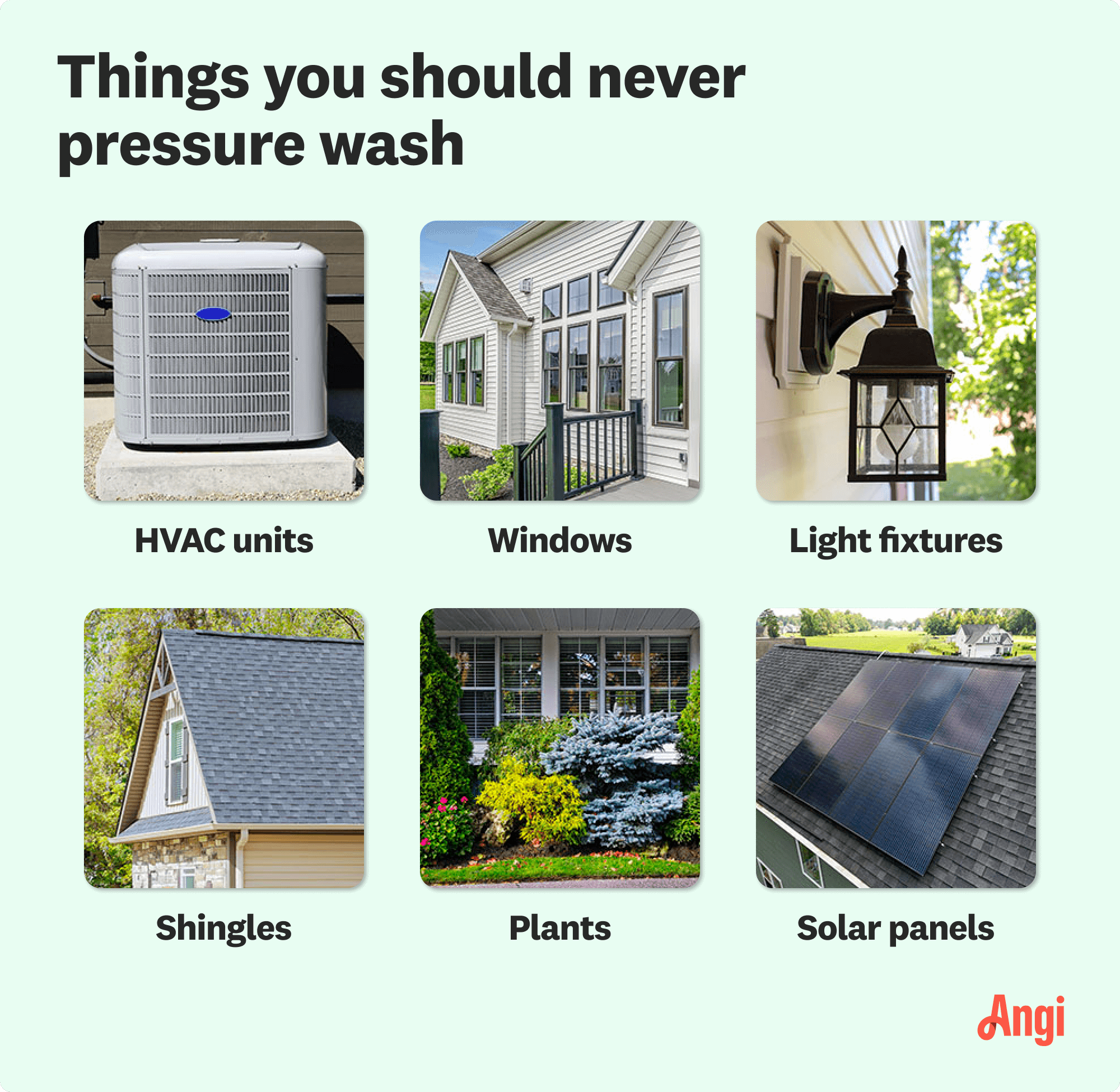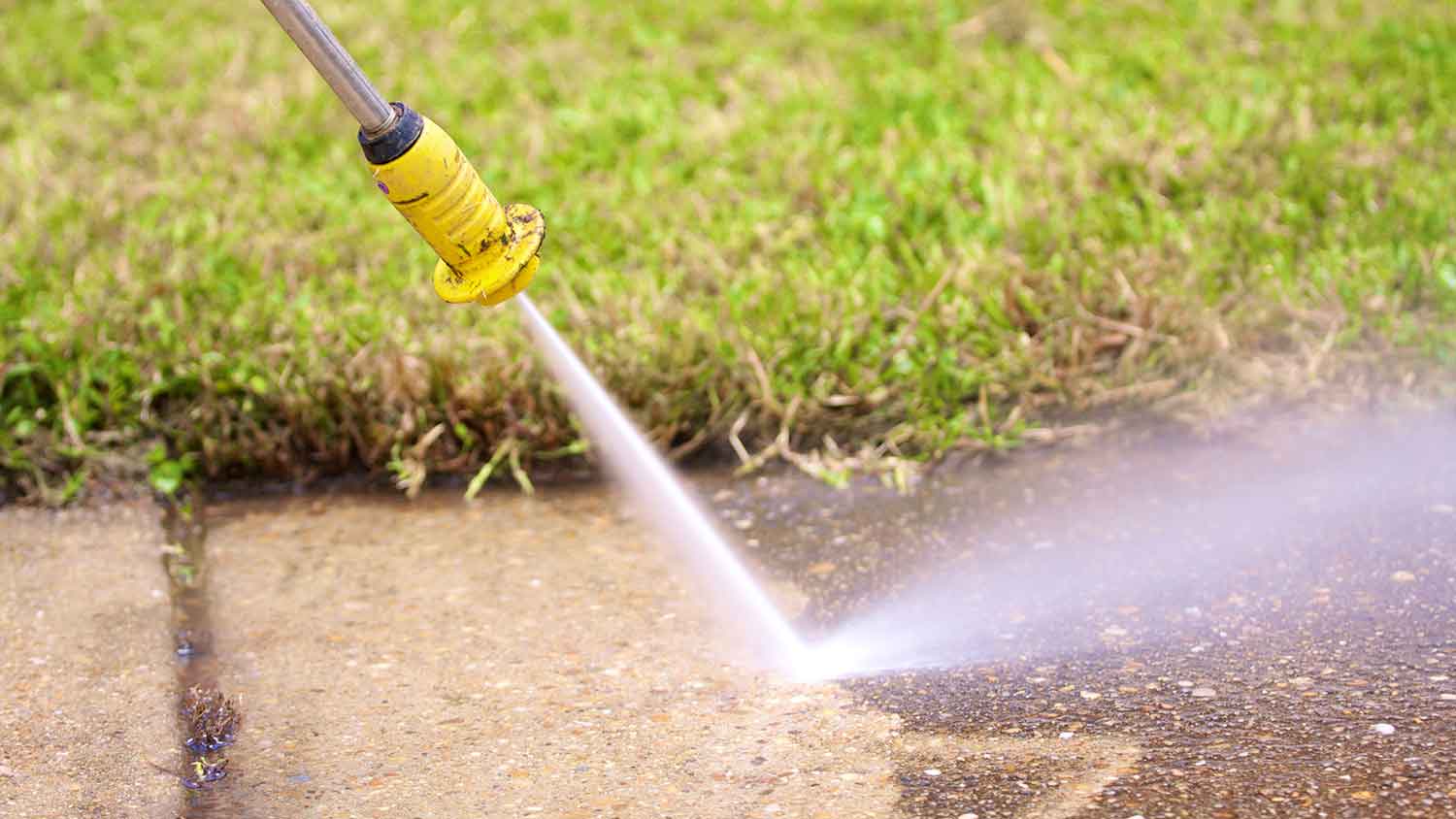Pressure Washer PSI vs. GPM: What’s the Difference?
Here’s an easy, no-pressure lesson


A machine’s psi, or pounds per square inch, measures water pressure.
GPM, or gallons per minute, measures the amount of water.
Using a machine with too strong of a psi can damage certain surfaces.
Cleaning units (CUs) are the multiplication of the psi by the GPM.
If pressure washing your patio or vinyl siding has been lingering on your to-do list for far too long, perhaps it’s because of the pressure of picking the right tool for the job. There are two measurements to know: pounds per square inch (psi) and gallons per minute (GPM). Keep reading to learn why having the right amount of both is important for the best results.
What Are the Differences Between PSI and GPM?
Here’s what you need to know about the key differences between the psi and GPM of pressure washers.
| Type of Difference | PSI | GPM |
|---|---|---|
| Measure | Force of water | Flow rate |
| Result | Pressure on surface | Amount of water |
| Usage | Tough stains | Large areas |
Pressure Washer PSI vs. GPM: Differences in Measurement
PSI, or pounds per square inch, measures the pressure or force of the water coming out of the pressure washer’s wand or spout. The higher the number, the stronger the flow. As an example, a run-of-the-mill garden hose delivers 50 psi on average.
GPM stands for gallons per minute, which is the water’s flow rate. To get a sense of GPM, think about your showerhead, which is also measured in GPM. The average showerhead has a GPM of 2.5.
Result Differences
A higher PSI means a more intense flow of water. It’s what puts the pressure in “pressure washer,” which you need in order to wash off stubborn dirt and stains. The psi is like the pressure washer version of a scouring pad—it’s best reserved for stubborn messes on surfaces strong enough to withstand the blast.
GPM, on the other hand, is all about the amount of water coming out of the nozzle. The higher the GPM, the more water there is shooting out per minute, regardless of the pressure behind it.
In short, if you need more power, go with more psi. If you simply want more water, go with a higher GPM.
Usage Differences

What does your cleaning project need: more pressure or more water? A higher psi is better for stubborn stains on smaller areas, but this is only true if the surface can handle that added pressure. High-psi machines are used in industrial or agricultural applications because the surfaces or equipment can handle the water blast.
Tough stains on softer surfaces, like a wooden deck, will benefit from a machine with a higher GPM. Otherwise, the pressure will cause it to splinter or chip. If you’re using a cleaning solution in addition to your pressure washer, then it’s also a good idea to go with a higher GPM machine because there’s more water coming out of it to wash it all away. More gallons per minute will get the job done faster, especially if you’re working on a large area, like a long driveway.
If you’re not sure whether or not something you want to clean is safe to pressure wash, call a pro for advice. A power washing pro near you can give you tips or handle the entire job so that you avoid a big mess from a DIY gone wrong.
How Cleaning Units (CUs) Relate to PSI and GPM

When deciding on which pressure washer is right for the job, you might see another measurement called cleaning units, or CUs. A CU is the number you get by multiplying the psi rating by the GPM rating.
For example, a pressure washer with 2,000 PSI and 3.0 GPM has 6,000 CU. However, a pressure washer with 3,000 PSI and 2.0 GPM also has 6,000 CU. So, while CUs are a good way to determine a pressure washer’s capabilities, they don't tell the whole story. That’s why it’s more important to focus on psi and GPM separately to ensure you get the job done right.
Frequently Asked Questions
A good psi rate depends on the surface you’re pressure washing. Concrete and vinyl siding, for example, can handle more power at 2,500 to 3,000 PSI. For wood, aluminum, and other softer surfaces, drop the psi down to 1,500 or less to avoid damage. Remember, psi measures the force of the water coming out of the pressure washer, so you’ll want something that gets the job done in a reasonable amount of time without harming the surface.
For residential tasks, a pressure washer with a GPM of 1.5 to 2.5 should suffice. For commercial or industrial applications, use one with a GPM of 3.5 or higher. When it comes to GPM, consider the size of the area that you want to clean. If it’s really big, a higher GPM will get the job done faster. If the area is smaller or not that dirty to begin with, you can choose a lower GPM and still get good results.















